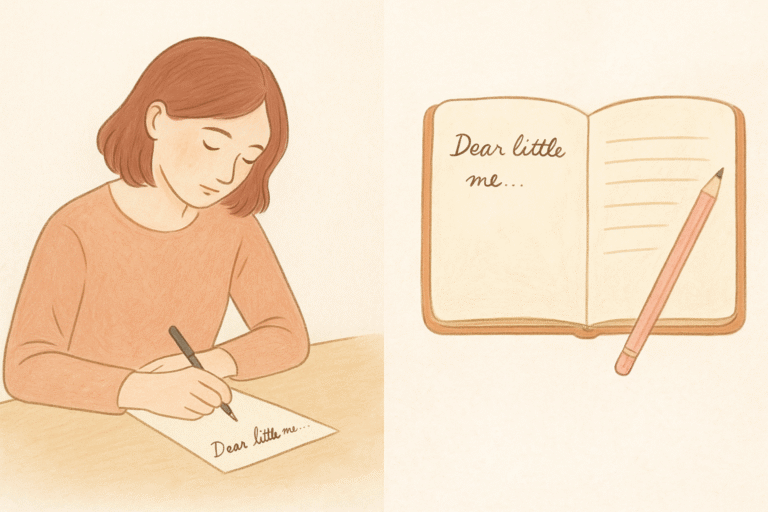The Science of Gratitude: The Positive Power That Transforms Your Mind and Life
Introduction
In a world that often focuses on what we lack, gratitude is a powerful mental shift that redirects our attention to what we have. Psychologists and neuroscientists agree — gratitude is not just a fleeting feel-good emotion; it physically changes your brain in ways that boost mental health, strengthen relationships, and enhance life satisfaction.
Dr. Robert Emmons, a leading voice in gratitude research, calls gratitude “the ultimate feel-good habit” because it’s consistently linked to greater happiness, deeper connections, and even better physical health.The best part? Building gratitude into your life doesn’t require grand gestures. It’s about small, consistent practices that gradually rewire your brain to naturally focus on the positive.
How to bring thankfulness into your day, step by step.
________________________________________
1. Start and End Your Day with Gratitude
•The First Step in the Morning: Gratitude, Not Screens
•Night: Before sleeping, recall three good things that happened during the day — no matter how small. Ending your day with positivity trains your brain to rest with a sense of contentment.
________________________________________
2. Keep a “Blessings Journal”
• Write down 3–5 things you appreciate every day.
• Include both big events (a milestone at work) and tiny joys (hearing your favorite song).
• Over time, your mind naturally starts scanning for positives, shifting your overall perspective.
________________________________________
3. Say “Thank You” More Often
• Express gratitude verbally to friends, family, co-workers, or even strangers.
• A sincere “thank you” not only makes others feel valued but also deepens your own appreciation for everyday kindness.
________________________________________
4. Gratitude Reminders
• Set phone alarms with prompts like: “What’s going great?” or “Who helped me today (Include Even the very small gestures)?”.
• Place cheerful messages where you’ll notice them, such as on your desk, fridge, or mirror, to lift your spirits as you go about your day.
________________________________________
5. Count Blessings in Real Time
• When something good happens, pause and mentally acknowledge it.
• For example, savor the warmth of the sun, the taste of your favorite dish, or a laugh with a loved one — and silently think, “I’m grateful for this.”
________________________________________
6. Make Gratitude a Social Practice
• Share one thing you’re grateful for during family meals or group chats.
• Encourage loved ones to join in — gratitude is infectious, and hearing others’ blessings multiplies the joy.
________________________________________
7. Gratitude Walk
• Take a short walk and mentally list the things you’re grateful for — from blooming flowers to the personal progress you’ve made.
• Nature combined with gratitude doubles the mood-lifting effect.
________________________________________
8. “Thankful Pause” During Stress
- • When you feel overwhelmed, stop for 30 seconds and name one thing you’re thankful for.
• This gentle shift can pull your brain out of pure stress mode and into a more balanced, hopeful state.
________________________________________
Why Gratitude Works – The Science Behind This
• Boosts Happy Chemicals: Gratitude increases dopamine and serotonin, creating a natural mood boost.
• Strengthens the Brain’s Positive Pathways: MRI studies show that practicing gratitude activates the prefrontal cortex, improving emotional regulation and resilience.
• Improves Sleep & Health: Research in Personality and Individual Differences shows that gratitude is linked to better sleep quality, lower blood pressure, and stronger immunity.
________________________________________
Final Thoughts
Gratitude is not about ignoring challenges — it’s about recognizing the good that exists alongside them. The more we practice thankfulness, the more our brains and hearts learn to live in abundance instead of scarcity.
Start today. One thought. One thank-you. One moment of noticing. Over time, these small acts create a powerful mental shift that transforms not just your mood, but your life.
________________________________________
Also Read This: https://claritythroughpsychology.com/inner-child-healing/
https://claritythroughpsychology.com/benefits-of-curiosity-in-relationships/
https://claritythroughpsychology.com/past-vs-future-self/
Frequently Asked Questions About Gratitude
Q1: How does gratitude improve mental health?
Gratitude boosts serotonin and dopamine — brain chemicals that improve mood — and reduces stress by helping the brain focus on positive experiences.
Q2: Can gratitude make you happier?
Yes. Studies show people who practice gratitude daily report higher life satisfaction, more optimism, and stronger relationships.
Q3: What is the best way to start a gratitude habit?
Every morning or evening, take a moment to notice three things you’re thankful for. Capture them on paper or speak them into the air.
Q4: Does gratitude really change the brain?
Yes. Neuroscience research shows gratitude activates the prefrontal cortex and strengthens neural pathways for positive thinking.
Q5: Is gratitude the same as ignoring problems?
No. Gratitude acknowledges the good in your life while still recognizing challenges — it gives you the resilience to handle them better.
Q6: What are the proven benefits of practicing gratitude daily?
Daily gratitude has been shown to boost happiness, lower stress, improve sleep quality, and strengthen relationships. Studies by Dr. Robert Emmons found that people who kept gratitude journals felt 25% happier and more optimistic.
Q7: How can gratitude change your brain?
Gratitude activates the brain’s prefrontal cortex, which helps regulate emotions and focus on positives. Neuroscience research shows it increases serotonin and dopamine, creating long-term pathways for joy and resilience.
Q8: How can I start a daily gratitude routine without feeling overwhelmed?
Start with three simple steps:
1.When you wake up, pause to think about the things that make you feel thankful.
2. Keep a short gratitude journal.
3. Verbally say “thank you” more often during the day.
Consistency is more important than time spent.
Q9: Can gratitude make you more successful?
Yes. People who practice gratitude tend to have better focus, stronger relationships, and higher motivation. A positive mindset opens the door to more opportunities and creative thinking.
________________________________________






